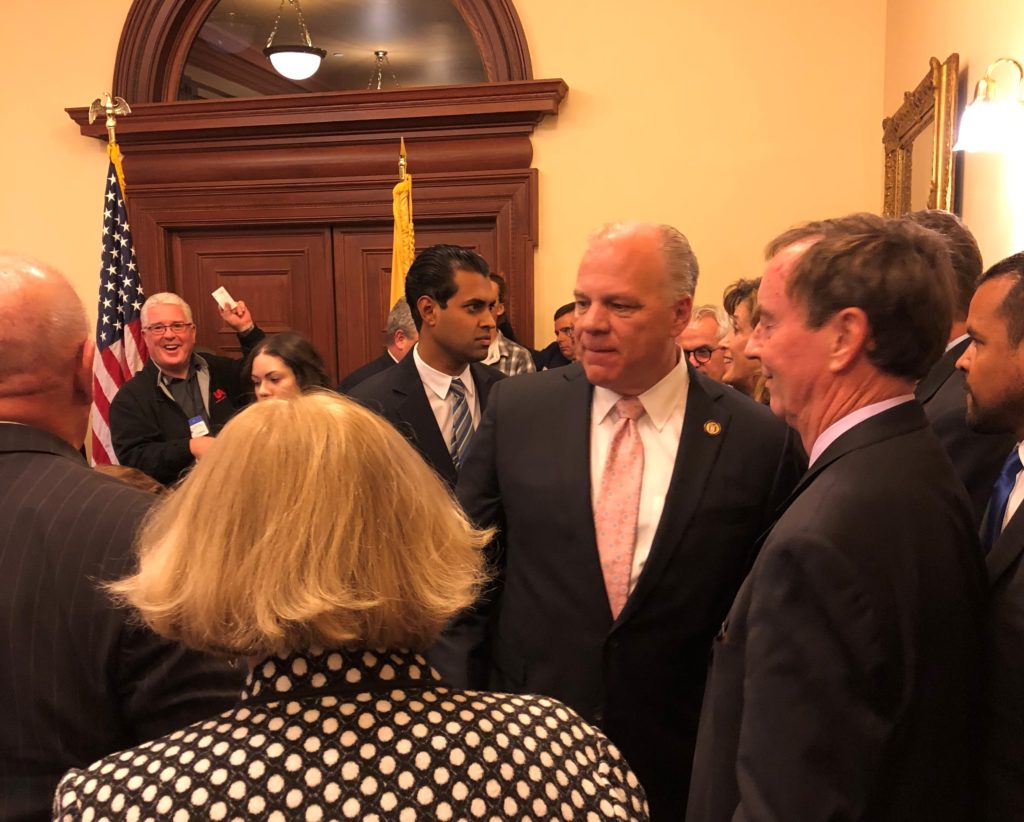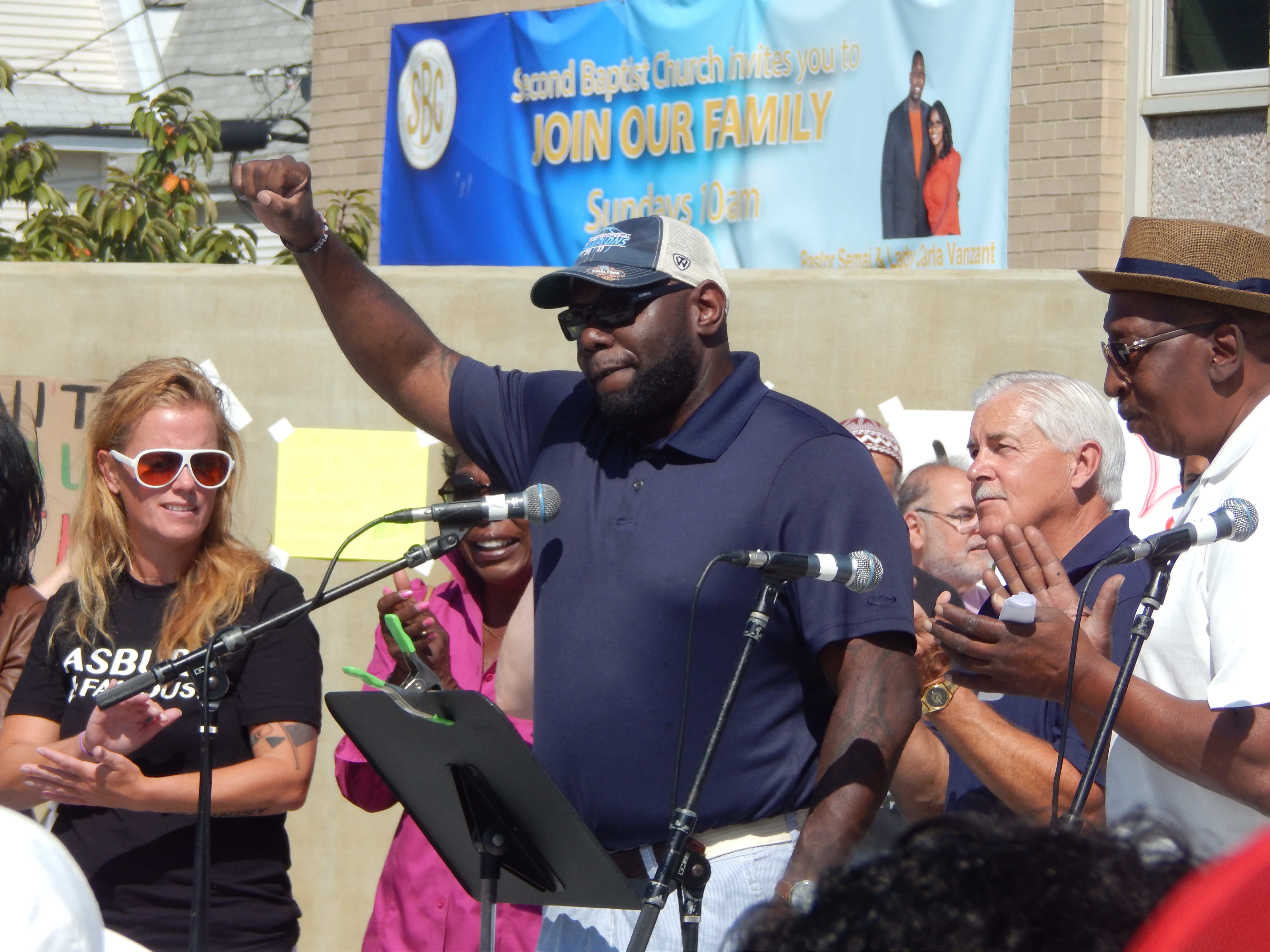Senate Passes Bill Requiring More Donor Disclosure

[caption id="attachment_11687" align="alignnone" width="4608"] Singleton[/caption]
Singleton[/caption]
The State Senate today unanimously passed S-1500, which requires more disclosure by independent spenders, the so called "dark money" bill.
The vote was 31-0.
According to Jeff Brindle, executive director of the state Election Law Enforcement Commission (ELEC), the legislation "requires registration and disclosure by independent factions and raises contribution limits for candidates and parties to account for 14 years of campaign inflation."
The following chart supplied by ELEC shows how the bill impacts New Jersey Disclosure Law:

The SMO sent out the following release:
TRENTON – The Senate today approved legislation that would require independent advocacy committees to disclose their donors, bringing greater transparency to organizations that work to influence the political process. Sponsored by Senator Troy Singleton (D-Burlington) and Senator Linda Greenstein (D-Mercer/Middlesex), the bill, S-1500, would require the so-called “dark money” groups to make public their expenditures and donors.
Senator Singleton said the measure would add accountability to special-interest spending and help rebuild public trust in government.
“Bringing greater transparency through more disclosure will help empower voters,” said Senator Singleton. “They deserve more information about the interests working to influence the legislative, regulatory and political processes so they can make informed decisions. Full disclosure will improve the process of government and enhance public confidence.”
The legislation would revise "The New Jersey Campaign Contributions and Expenditures Reporting Act" to institute new reporting requirements for contributions over $10,000 and all expenditures over $3,000 by organizations attempting to influence the outcome of any election and support or oppose any public question, legislation, or regulation or to provide political information on any candidate, public question, piece of legislation, or regulation.
“This reform measure will lift the veil of secrecy that surrounds the actions of organizations working to influence the political process,” said Senator Greenstein. “As candidates, we disclose our donors and expenditures. The disclosure requirements should extend to the groups that are spending to get favored outcomes.”
The bill was strengthened to expand the disclosure requirement to include advocacy or opposition to proposed or existing legislation or regulations, and to cover all contributions retroactive to January 1, 2018. It would also establish a 48-hour reporting requirement around elections similar to current law overseeing other political committees, and would cover digital and online advertising.
According to the Election Law Enforcement Commission, the top 25 special interest groups spent more than $74 million trying to influence elections and policies in 2017, through super PACs, political action committees or lobbying. Of that, $41 million was so-called “dark money,” the contributions these non-profit organizations can receive from corporations, individuals and unions without having to disclose their donors.
The bill also updates contribution limits. It increases the amount of money that can be contributed to a candidate from $2,600 to $3,000; from $8,200 to $9,300 for political committees; to state political parties and legislative leadership committees from $25,000 to $28,000 from individuals and most groups, and from $72,000 to $82,000 for money from a national political party to a state committee. Contributions to county political parties would go from $37,000 to $42,000; from $7,200 to $8,200 for donations to municipal committees of a political party; and from $7,200 to $8,200 for money to political committees.
These increased limits encourage more support for the political parties – which already operate with full disclosure - helping to shift the disproportionate influence away from special interest spending, Senator Singleton said.
The legislation was approved with a vote of 31-0.





